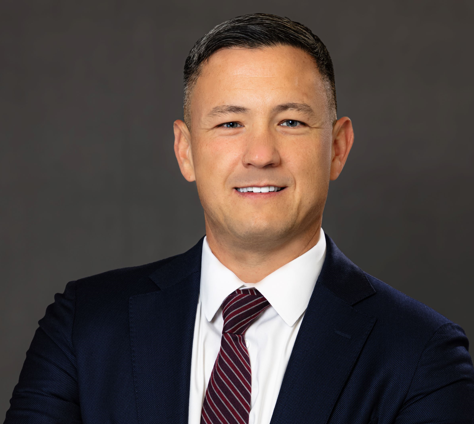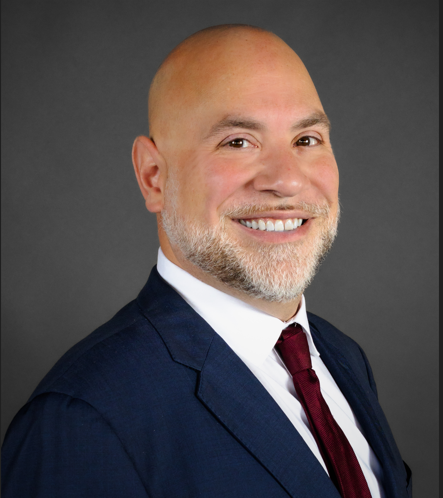Construction Law
Construction Contract Dispute Practice Group
During a construction project, many different types of disputes may arise between the parties. A contractor may claim entitlement to additional contract time and/or additional compensation because of changed conditions, extra work, delay, acceleration, lost productivity, defective plans and specifications, and the like. Similarly, an owner may claim damages for defective work and/or a contractor’s failure to complete the work on time. In addition, the owner or the contractor may have reason to make claim against the project’s architect or engineer due to a deficient design and/or a failure to properly provide construction administration services.
Our Construction Contract Dispute Practice Group typically assists general contractors, construction managers, subcontractors and/or suppliers with any of the foregoing issues, but occasionally we assist owners and/or design professionals as well.
Contract Review
Today, having good, written contracts is a must. No longer should anyone rely upon “handshake” or verbal contracts. Verbal agreements are legally binding, but the lack of a written contract increases the potential that the parties may disagree upon their respective duties and obligations. By putting everything in writing, the parties reduce the potential for costly disagreements.
There are many commercially available contract templates that can be purchased – the American Institute of Architects AIA Series being the most widely used – but these documents need to be tailored for your specific situation. These contracts establish many important considerations such as the timing for payment, change order procedures, requirements for substantial completion, suspension, termination, and dispute resolution. The standard language may not be in your best interest in every situation. You should review these documents with a qualified professional before assuming they fit your needs.
Contractors, construction managers, and/or subcontractors are often presented with contracts that they are told are not subject to negotiation. Nonetheless, at a minimum, you should review these agreements with a qualified professional to make sure you understand their ramifications. You may also attempt to renegotiate the more egregious provisions, and, if necessary, consider walking away from the work if the proposed contract is completely unreasonable.
Our years of managing construction projects and litigating construction contract disputes make us uniquely qualified to advise our clients regarding construction contract issues.
Project Administration
The outcome of a construction contract dispute is often largely decided before a complaint or a demand for arbitration is filed. Actions taken during a project may affect the final outcome. Generally speaking, the failure to issue a progress payment when due and/or grant a legitimate request for an extension of time are considered material breaches of a contract; the failure to comply with contractual notice requirements may result in the waiver of a claim; and the failure to follow a contractual termination procedure results in a wrongful termination. Moreover, receiving the proper advice as a claim develops may prevent the situation from reaching the point where litigation is required.
We routinely advise clients on how to handle developing or ongoing problems so that litigation may be avoided, or how to best position themselves when litigation becomes necessary.
Legal Actions
Mechanic's Liens/Bond Claims
Anyone that supplies labor, materials, and/or services to a construction project is entitled to be paid for their work. Mechanic’s liens and payment bonds both supply security for that debt. In many states, architects and engineers may also file mechanic’s liens.
Mechanic’s liens provide an attachment to real property in the same manner as a mortgage. Unfortunately, each state has its own procedure for establishing and perfecting a mechanic’s lien. Although mechanic’s liens were initially envisioned as something that a contractor would be able to handle on its own without the aid of an attorney, judicial interpretations of the rules have laid many traps for the unwary. Therefore, you should consult with a trained professional before filing a mechanic’s lien.
Payment bonds are often required on public projects where mechanic’s liens are not allowed, but payment bonds are sometimes required on private projects as well. Contractors and suppliers that provide labor, materials and/or services to a project without being paid can make claim on the bond provided they are a subcontractor or supplier to the general contractor or a sub-subcontractor or supplier to a subcontractor. A payment bond on a public project is referred to as a “statutory bond” because the requirements for making claim on the bond are governed by state statute instead of the procedure written on the bond form. Conversely, with regard to claims for payment bonds issued on private projects, the procedure written on the bond form must be followed. In both situations, the procedure typically requires notice of claim to be given within a specific number of days after the last day of work and/or supplying materials and commencing an action on the bond within a specific amount of time – typically one year from the last day of work and/or supplying materials.
Mechanic’s liens and payment bond claims make up a substantial part of our practice.
Performance Bonds
Performance bonds guarantee the completion of a project. Typically, if an owner wants to maintain its rights on a payment bond, it must notify the surety that it is considering declaring the contractor in default before actually terminating the contractor. The surety will then schedule a meeting with the owner and the contractor to see if a resolution of the dispute can be negotiated. If the contractor is found to be in default, the surety will fulfill its obligation to the owner by:
Paying for the completion of the work (up to the penal sum of the bond);
Having its bond principal complete the work under its supervision; or
Hiring a completion contractor.
Most often, however, the surety’s liability is disputed and the issue must be litigated. We have handled many such cases.
Changed Conditions/Unforeseen Conditions
Anytime a contractor performs excavation or demolition work, there is a chance that it may encounter conditions that are different from those originally anticipated. These changed or unforeseen conditions almost always result in the contractor incurring additional costs and/or requiring additional time to complete the work. These situations may also result in a contractor encountering contaminated or hazardous materials that it is not qualified to remediate. These potential problems should be addressed in the parties’ agreement, but, if they are not, you need to seek immediate legal advice the moment they are encountered to make sure that your rights are preserved. In addition, even when these situations are contemplated by the contract documents, the owner and/or design professional providing construction administration may fail to recognize the situation as one involving a changed or unforeseen condition. In these situations, immediate legal advice should be obtained.
We have the experience and the expertise to advise our clients in these difficult situations.
Wrongful Termination/Abandonment
Whenever a contractor does not complete its work, it will be because the contract was terminated, or the contract abandoned. A wrongful termination comes about if the contract is terminated without cause (and the contract does not contain a termination for convenience provision). However, an owner whose termination of a contract was based upon a legitimate default can still be found to have wrongfully terminated the contract if it did not follow the contract’s termination procedure. Moreover, common law principles found in the Restatement of Contracts require that a defaulting party be given notice and an opportunity to cure the default before a termination becomes effective. A contractor’s damages for wrongful termination are generally the reasonable value of the completed work and the lost profits on the uncompleted work.
Acceleration/Delay/Lost Productivity/Liquidated Damages
A project’s completion date can be one of the most contentious issues that ends up in dispute. Most projects have a Substantial Completion date, which is usually defined as when the owner can make beneficial use of all or part of a project; and a Final Completion date, which is usually defined as when the work is 100% complete. The typical process has the contractor notify the architect that it believes that the work is substantially complete. At that time, the architect will inspect the work and, if it agrees, will issue a Certificate of Substantial Completion and a “punchlist” of the remaining work that the contractor needs to perform to fully complete the work.
Prior to reaching Substantial Completion, any number of things can happen that delay the work and/or require the contractor to incur additional costs to meet the original completion date. Whether the owner or contractor is liable for these delays and/or costs is often disputed.
Our experience in construction allows us to understand and evaluate baseline construction schedules and schedule updates as well as the two or three week “look aheads” that are often produced during the work. We have handled many cases involving delay and/or acceleration claims in addition to claims for constructive acceleration, which is a form of acceleration that is implicitly required by the owner’s failure to allow an extension of time when the owner was liable for the delay(s).
Many cases involving delay result in claims for lost productivity, but such claims do not necessarily require a delay to have occurred. An owner can cause a contractor to incur additional costs through inefficiencies by requiring the work to be performed out of sequence, stacking of trades, and not making the full site available for the project duration, etc. The problem with a lost productivity claim is that it often cannot be proven directly and requires expert analysis. We have handled a number of such claims. We routinely work with experienced experts that have a proven track record of success at trial. In addition, we know the pitfalls associated with an improper analysis, which allows us to successfully discredit any rebuttal experts offered by the owner.
An owner’s claim for delay can be as difficult to quantify as a contractor’s claim for lost productivity. However, instead of having to resort to expert witness testimony, an owner’s “damages” are often liquidated, i.e. agreed to in advance as part of the contract in a “liquidated damages” provision which states that the contractor shall be liable to the owner for a specific dollar amount for each day the project’s completion is delayed. However, such provisions must be reasonably related to the owner’s actual damages. Otherwise, the court will declare the provision an unenforceable penalty.
We have the knowledge and the expertise to navigate these provisions.
Defective Plans and Specifications
Under the Spearin Doctrine (US v. Spearin), an owner absolutely guarantees the plans and specifications to its contractor. Therefore, if there are any mistakes at all in the plans - even ones the contractor should have noticed – the owner is liable to the contractor for any additional costs it incurs as a result. Conversely, when it comes to an architect’s or engineer’s obligations to the owner, the law does not require perfection. There are mistakes that architects or engineers are allowed to make in the construction documents for which they will not be found liable to an owner. Therefore, the Spearin Doctrine creates a gap of liability where the owner will be liable to its contractor but will not be able to recover from its design professional. For that reason, we believe that a contractor’s best course of action is to bring claims for defective plans and specifications against the owner instead of the design professional. In addition, contractors making claims against design professionals will have to deal with the lack of privity and the Economic Loss Rule.
We have successfully brought claims against design professionals when conditions warrant. We have the experience, knowledge, and expertise to properly guide you through these complex considerations.
Bid Protests
Generally speaking, the public bidding laws are for the benefit of the taxpaying public and not the contractor. Nonetheless, most jurisdictions allow the legal fiction, where disappointed bidders can bring actions for injunctive relief as private attorneys general to make sure that the government does not improperly spend public funds. The standard is that, in evaluating public bids, the government is not allowed to engage in fraud, favoritism or corruption. Of course, when the government awards a public works construction contract, it is required to make the award to the lowest responsible bidder. Therefore, claims in this area can be brought when a bidder believes it was wrongly disqualified and/or when the second lowest bidder believes the lowest bidder was not a responsible bidder. Issues of responsibility also come up with regard to the bidder’s compliance with the Invitation. Under most regulations, a bidder, who is otherwise qualified to perform the work, cannot be awarded a contract if it does not submit all the required documentation with its bid. Late submissions are generally not allowed.
We have substantial experience with public bids and can help you determine when a protest is appropriate in order to avoid wasted efforts.
Alternative Dispute Resolution
Most construction contracts require disputes to be settled by mediation followed by arbitration as opposed to court trial. We agree with that approach. In a mediation, a knowledgeable third party works with the parties to help reach a settlement. If a settlement can be reached early in the dispute resolution process, both sides win because they do not have to deal with the time, aggravation and expense of a trial or arbitration. In an arbitration, the arbitrator(s) hear the evidence and issue a final and binding decision much like a judge or jury. However, arbitrator(s) often have construction industry knowledge and/or experience unlike most jurors or judges. Therefore, it is more likely that an arbitrator will reach a correct decision. In addition, if done correctly, arbitration is a more streamlined process than a court trial, thereby reducing costs. As Voltaire said, “I was never ruined but twice: once when I lost a lawsuit, and once when I won one.” If you can avoid a court trial, you should. One reason most attorneys do not like arbitration is because they do not have the same discovery tools that are available in court. In a court trial, an attorney is able to find out everything about the other party’s case before trial begins. The arbitration rules do not provide attorneys with that luxury, which is one of the reasons that it should be less expensive.
We have the construction industry knowledge and experience to handle anything that may come up for the first time during an arbitration hearing. We have successfully discredited expert witnesses during cross-examination that we were not even notified in advance would be testifying. Thus, we are uniquely qualified to help you succeed in arbitration for a lower legal cost than a court trial.
OSHA
No one is ever happy to see OSHA arrive on their jobsite. You might be surprised to find out, however, that OSHA’s powers are not unlimited. If one of our clients receives a visit from an OSHA representative, we are available to provide advice as to what our clients have to allow and what they can refuse. Nonetheless, if the inspection still results in the finding of a violation, we help our clients through the administrative process where that violation and/or fine can be mitigated or reduced.
Our experience enables us to handle the complete spectrum of issues arising before, during and after project completion.Our construction litigation team has tried cases in the state and federal courts across the United States, and we have argued cases in many different appellate forums. We have appeared in various forums for arbitration, mediation and other kinds of alternative dispute resolution.
Our lawyers are authors of The Labor Law Handbook published by the New York State Bar Association to address construction site loss. Our experience extends to counseling clients on risk avoidance in construction programs. We also understand the traditional and bespoke insurance structures surrounding construction. Our construction attorney participate in key industry groups including the Associated General Contractors of America, American Institute of Architects, American Bar Association, and the U.S. Green Building Council’s LEED AP Program.
American with Disabilities Act Compliance and Disputes
Business property owners and tenants often misunderstand their legal obligation to make premises accessible to individuals with disabilities. Many businesses mistakenly believe that if they owned or leased premises before accessibility laws were enacted or if they have not made substantial physical changes to premises during that time then they have no obligation to make it accessible to individuals with disabilities. In other words, they believe they are “grandfathered in,” making them exempt from laws that now require businesses open to the public to be fully accessible to individuals with disabilities. The reality is that most business owners welcome disabled customers and offer assistance if it is needed. Yet, both federal and state laws require businesses to do significantly more. Our lawyers are experienced in advising clients on all aspects of the ADA. We also represent clients in suits brought against them for ADA non-compliance. Often, “career plaintiffs” look for violations of ADA in order to seek some form of cash settlement. We fight these claims and win.
Design Professionals
We represent architects and engineers in contractual issues related to project delivery systems such as design-build, design-bid-build, and fast-track. We advise on relationships with owners, consultants, contractors or subcontractors, during the pre-design, design, construction and post-construction phases. We handle claims regarding design professionals, and by or against professional liability insurance carriers. Our practice in this area is enhanced by the group’s experience in the formation and management of design professional practices.
Our Construction Practice Group lawyers who focus on design professional issues work closely with team members in our Professional Liability Practice Group.
Appellate Advocacy
The appellate outcome of construction matters is equally important to the outcome of a trial or lower court proceeding. Appeals often have precedent setting significance with impact far beyond a single matter. Success at the appellate level requires different skills than those applied at trial. It is important to understand the appellate bench, and the perfection of the record.
Our lawyers’ analytical, writing, and oral advocacy skills are honed for success on appeal. Our lawyers have served as judicial law clerks to trial and appellate court judges, providing insight into the working of the priorities and decision-making of the bench.
Our Construction Practice Group lawyers work closely with our Appellate Practice Group – teaming together to often parachute into matters handled by separate trial counsel. We are regularly sought in this regard to serve as appellate monitoring counsel during trial. Clients also engage us to write amicus curiae briefs, and to work with other trial counsel to ensure that construction matters are properly postured for appeal.
Class Action Defense
Achieving success in construction class action matters requires strategy for early dismissal, defeating class certification, Rule 23(f) appeals of class certification decisions, and precluding plaintiffs’ expert witnesses. This strategy must work backwards from the desired result to be successful. We understand the constantly evolving standards for class certification in the construction arena. We have been able to convince parties and courts that certification must be denied. In this regard, we understand that class actions can often be favorably resolved with a comprehensive and irrevocable settlement. Often, carefully negotiated settlements of class actions are true “wins” in that they avoid years of litigation cost, uncertain risk and potential reputational harm. We also recognize the need for coordinated strategy against the setting of regulatory inquiry, government action, or criminal prosecutions.
Commercial Landlord/Tenant Disputes
Our lawyers are experienced in representing landlords in commercial leasing disputes. Commercial leases involve a unique and often complicated interplay between contract law, property law and business strategy. Disputes in commercial leases may trigger statutory obligations or may simply require the application of law. Landlords are faced with numerous difficult decisions regarding which remedy to pursue in correcting the situation when tenants refuse to pay rent or comply with the obligations in the lease.
In addition to our legal experience in commercial landlord/tenant disputes, our attorneys also have experience in the property management field. Understanding the business and economic issues facing landlords dealing with commercial leasing problems allows us to provide legal advice that makes good business sense.
Our Construction Practice Group lawyers who focus on commercial landlord/tenant issues work closely with team members in our Commercial and Corporate Practice Group.
Construction Defect and Property Damage Claims
We represent owners, contractors and other project participants in claims that arise out of property damage to projects during construction or after project completion. Many construction contractors and subcontractors have found themselves on the receiving end of a complaint about the quality of the result of their work. Project managers and construction executives need lawyers who are experienced with the defenses available in the event of a complaint that work is defective. We apply knowledge of the nuances of the Spearin Doctrine, betterment doctrine, discharge by prior material breach, as well as notice and opportunity to cure. Our team has years of knowledge with examining causation issues, spoliation of evidence, and the failure to mitigate.
E-Discovery
Our lawyers advise construction clients in developing pre-litigation policies and procedures. We counsel clients on implementing effective technologies to manage and dispose of data defensibly and consistently with emerging best practices. Our team also advises on preserving documents and data effectively where there is a duty to preserve. We work with clients to explain defensible disposal before a duty to preserve arises. Once a duty to preserve arises, we work hand-in-glove with clients on legal holds and their scope. Our managing partner, John Jablonski, is nationally recognized in this arena. He is the Editor of Arkfield’s Best Practices Guide for Legal Holds, and the former chair of the Defense Research Institute’s E-Discovery Committee.
Employment, Labor and OSHA
As counsel for many construction businesses, we guide employers in employment structuring and documentation – with the goal of minimizing claims and litigation. We believe in well-crafted and designed employer/employee relationships that are memorialized in clear and fair employment agreements and other employment-related documents. We also counsel clients in connection with decisions related to disciplining and terminating employees. When an employee alleges of harassment or discrimination, we guard our clients’ interests. When disputes arise, we team with clients on a strategy that resolves the dispute before litigation ensues. However, we recognize that certain cases are especially difficult to resolve and must therefore be aggressively defended. We have a proven record of success in employment litigation and arbitration.
We assist clients in confronting the landscape of health and safety regulations of federal, state and municipal agencies to protect individuals and property in the workplace. We advise on the scope and application of these regulations, the potential liabilities in ongoing project activities and appropriate responses to inspection issues or the issuance of subpoenas and citations.
Our Construction Practice Group lawyers who focus on employment and labor issues work closely with team members in our Employment and Labor Practice Group.
Environmental Risks
Our construction lawyers keep current on environmental risks on construction projects such as federal CERCLA and RCRA liabilities and compliance with state statutes and regulations. We counsel environmental engineers, contractors, owners, sureties and insurance carriers in assessing environmental risk and resolving environmental issues in construction projects.
Our Construction Practice Group lawyers who focus environmental risks work closely with team members in our Toxic Tort and Environmental Practice Group.
Government Contracts and Bid Protests
We provide a full range of services in connection with government contracting at the local, state and federal level, and with international agencies. We have litigated matters involving procurement laws and the awards process, and have written extensively on competitive bidding and related subjects. We represent public owners, contractors, subcontractors, engineers, architects, suppliers and sureties in the procurement process, including bidding, bid protests, contractor selection and awards processes used by public agencies.
Insurance Programs
Our vast experience with construction losses causes clients to seek our counsel in construction property and liability losses. Insurance issues are unique among general contractors, prime contractors, sub-contractors, sub-sub-contractors, construction managers, owners, developers, architects and engineers. We understand the traditional and bespoke insurance structures surrounding construction. Additional insured and contractual indemnity issues often intertwine. Certificates of insurance are often insufficient. We comprehend complex issues surrounding construction defect, Wrap and OCIP policies, as well as the impact of completed operations. One of our lawyers in the author of a key chapter on construction insurance loss and risk shifting entitled “Labor Law and Construction: Insurance Coverage and Indemnity Unveiled” for the The Labor Law Handbook published by the New York State Bar Association. Our experience extends to counseling clients on risk avoidance in construction programs.
Our Construction Practice Group lawyers who focus on insurance issues work closely with team members in our Insurance Solutions Practice Group.
Public-Private Partnership Projects
We represent federal, state and local governments, as well as developers, lenders and other private sector firms in P3 projects. We negotiate arrangements and establish properly aligned incentives that are the foundation for successful P3 projects.
Our Construction Practice Group lawyers who focus on public-private partnership projects work closely with team members in our Commercial and Corporate Practice Group, as well as our Municipal and Government Practice Group.
Sustainable Designed Construction
We advise clients on alternatives available to address sustainable/high energy efficiency/green building design and construction. We understand available incentives and modeling contract documents to reflect the added responsibilities and risks.















































































Mechanic's Lien Basics Under New York Law
Anyone who provides labor, materials and services for the improvement of real property is entitled to file a mechanic’s lien against the property in order to have security for the amount they are owed.
2024 Top Women NY Metro Super Lawyers
Gerber Ciano Kelly Brady LLP is honored to announce that five of its lawyers have been named to the Super Lawyers list of 2024 Top Women Lawyers in their respective practice areas in the New York Metro area.
Top 10 Construction Law Firms - Construction Business Review
New York, January 9, 2024 – Gerber Ciano Kelly Brady LLP is pleased to announce that the firm has been recognized by Construction Business Review magazine in The Top 10 Construction Law Firms™ for 2023.
Gerber Ciano Kelly Brady Ranked as One of The 2024 “Best Law Firms” by U.S News and World Report for Fifth Year in A Row
NEW YORK, November 2, 2023 —Gerber Ciano Kelly Brady LLP announces it was named to
